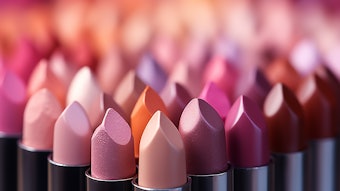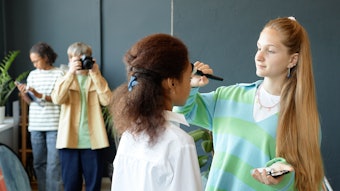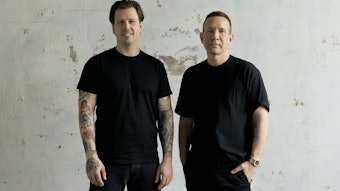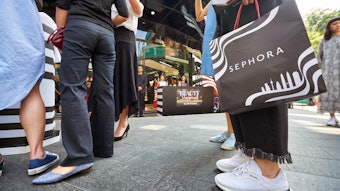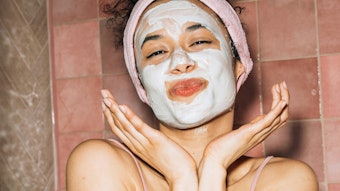Seeking a bigger bite of the beauty market in Latin America, Avon announced an agreement with Greek skin care brand Korres that grants it exclusive rights to develop, manufacture and market Korres products in Latin America. The long-term agreement gives Avon the option to purchase all intellectual property rights for Korres products in the region and covers all Avon’s major Latin American markets.
Of the agreement, Avon Products CEO Sheri McCoy said, “Latin America is a growing beauty market and a major component of the Avon portfolio. I’m very pleased that through this strategic alliance... we can leverage Avon’s extensive network and capabilities to bring the Korres brand and products to more women across Latin America.”
Beauty Brands Hindered By Import Barriers
Ecuador and Argentina’s new protectionist policies have affected the operations of two top Peruvian door-to-door sales beauty companies—Unique and Belcorp—according to the Peruvian newspaper El Comercio. Belcorp left the Argentine market in January 2014 reportedly because of increasing inflation, import barriers and the impossibility of transferring funds overseas. And Belcorp is just the next in a growing list of fashion and beauty brands that have closed their doors in areas of Latin America since 2013, including Cartier, Yves Saint Laurent, Calvin Klein, Escada, Ermenegildo Zegna and Ralph Lauren.
At the end of 2013, Ecuador passed a resolution that establishes 293 products that must meet the new requirements of the Instituto Nacional de Normalización (INEN) in order to enter the country. According to the country's press, the intention is to create an import barrier as the Ecuadorian government seeks to revert its commercial deficit. Several foreign firms are having difficulties as a result, and El Comercio reported president Rafael Correa himself told Unique, Avon and Colombian company Quala—companies that reportedly control 70% of the Ecuadorian cosmetics market—their imports would only be authorized if they built facilities in the country or outsourced 20% of their production in Ecuador.
Maison Lancôme Closes in Argentina
Lancôme, aluxury division of L’Oréal, closed its emblematic Maison Lancôme location in Argentina. The news was confirmed to the local media by Valentín González, director of the company’s luxury division in Argentina.
Inaugurated in 1997 and located on one of the principle avenues in an upmarket neighborhood in Buenos Aires, the shop was especially well knowne for being the first Maison Lancôme to open outside Europe, as well as being the only one in Latin America.
L’Oréal’s spokesperson insisted the reason for the closure was that the location no longer met the company’s international standards, but the Argentine media has speculated increased costs resulting from government import restrictions may have influenced the decision.
L’Oréal ceased local production in Argentina during the country’s major economic crisis in 2001 and since then has imported all of its products. The Lancôme brand remains available at 150 points of sale throughout the country, including retailers Falabella, Juleriaque, Rouge and Kartun.
Ecuador Increases Cosmetics Production
Ecuador’s industry and productivity department signed an agreement with Procosméticos in a bid to increase local beauty and cosmetic product production with an eye on substituting imports and boosting exports. The agreement commits the beauty industry in the country to increase production to $54.6 million in 2014 and $64.9 million in 2015. It also establishes a 25% reduction in imports.
One of the main goals is to boost profits in this area of Ecuador's industry. To follow through with the commitment, companies ahd special dispensation for the first trimester of 2014 in order to import products subject to the new regulations RTE INEN 093 and RTE INEN 088. Companies were allowed to import quantities equivalent to historic averages in 2012 and 2013, and the agreement also specifies the commitment of Avon, Belcorp, Quala and Yanbal to use the 100% Ecuadorian alcohol to produce fragrances in the country.
Imported beauty products are included on Ecuador’s foreign trade resolution on a list of products that has to fulfill INEN quality requirements to be commercialized in the country. The regulations mean that, to be sold in Ecuador, these products must list ingredients and must be free of microbiological pollution and bacteria that could cause skin damage.
Peruvian Beauty Exports Increase
Peru’s beauty products exports are expected to rise by 10–12% this year, with growth falling back to 2012 values. The Peruvian Cosmetic and Hygiene Committee (Copecoh) of the Trade Chamber from Lima (CCL) has estimated total exports will rise to $160 million.
Committee president Ángel Acevedo told Peruvian magazine Gestión to expect a rise of 12% in the first semester and a lower increase in the second. The aim remains to hit a figure of $3.5 billion by 2017, although Acevedo recognized the speed of growth had slowed down. The industry saw exports grow by 23% in 2011 and 43% in 2013. He put the deceleration down to import restrictions and the renewed priority given to local industry in countries like Argentina, Bolivia and Ecuador.
Acevedo also highlighted the importance of the beauty and cosmetics sector to the national economy and said Copecoh was turning its attention to Europe in the search for new export markets, with all the quality requirements that may imply.
Cristina Kroll is a business journalist specializing in the beauty sector and living in Buenos Aires, Argentina. She has written for the main Argentine magazines related to the beauty business, and was a correspondent for French magazine Beauty Business News.

